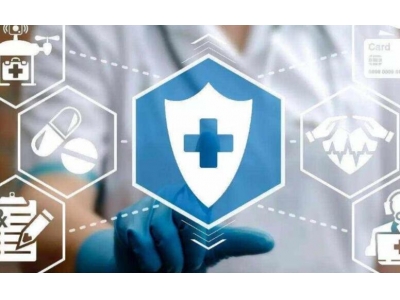央企智慧城市
一、央企智慧城市
随着科技的飞速发展,智慧城市已经成为当今世界的一个热门话题。作为现代化城市建设的重点,智慧城市的建设涉及到各个方面,从交通管理到环境保护,再到公共服务的提升,都需要借助先进的技术手段来实现。而央企在智慧城市建设中扮演着举足轻重的角色。
什么是智慧城市?
智慧城市是利用信息与通信技术来提升城市管理和服务水平的新型城市模式。通过融合物联网、大数据、人工智能等技术,智慧城市可以更加高效地运行和管理城市资源,提升居民的生活质量。
央企在智慧城市建设中的作用
作为中央企业,央企在智慧城市建设中发挥着重要的作用。央企拥有雄厚的资金实力和丰富的技术资源,能够为智慧城市建设提供强有力的支持。央企智慧城市建设的核心在于整合各个领域的资源,将城市的各个方面有机地连接起来,实现信息的流通和共享。
在交通管理方面,央企可以利用先进的交通监控技术和智能化交通系统,提升交通运行效率,减少交通拥堵,改善居民的出行体验。央企可以通过大数据分析和智能调度,优化公共交通路线,提供更便捷的出行选择。
在环境保护方面,央企可以利用大数据和物联网技术,监测城市的环境指标,实时掌握污染物排放情况,及时采取相应措施。央企还可以推动清洁能源的开发和利用,减少对传统能源的依赖,为城市的可持续发展做出贡献。
在公共服务方面,央企可以通过智能化系统的建设,提供更高效、更便捷的公共服务。例如,在医疗领域,央企可以建设智能化医疗系统,实现电子病历的共享,提升医疗资源的分配效率。在教育领域,央企可以建设智能化教育平台,提供个性化的学习资源,提升教育质量。
央企智慧城市建设的挑战与机遇
央企在智慧城市建设中也面临着一些挑战。首先是技术问题,智慧城市建设需要各种先进的技术手段的支持,央企需要不断进行技术创新和研发,以适应城市建设的需求。其次是数据安全问题,智慧城市建设涉及到大量的数据收集和处理,央企需要加强数据安全保护,防止数据泄露和滥用。
然而,央企智慧城市建设也充满了机遇。随着人工智能和物联网技术的发展,央企有机会利用这些新技术,推动智慧城市建设的进一步发展。央企在智慧城市建设中还可以通过与其他企业的合作,实现资源共享和优势互补,共同推动智慧城市建设的进程。
结语
央企在智慧城市建设中的作用不容忽视。通过整合资源、创新技术、提供高效的公共服务,央企可以为智慧城市建设做出重要贡献。同时,央企在智慧城市建设中也面临着一些挑战和机遇,需要不断调整和创新,以适应城市发展的需求。
Translated: htmlWith the rapid development of technology, smart cities have become a hot topic in today's world. As a key focus of modern city construction, the construction of smart cities involves various aspects, from traffic management to environmental protection, and even the improvement of public services, all of which require the use of advanced technological means. State-owned enterprises (SOEs) play a crucial role in the development of smart cities.
What is a Smart City?
A smart city is a new urban model that uses information and communication technology to improve city management and service levels. By integrating technologies such as the Internet of Things, big data, and artificial intelligence, a smart city can operate and manage urban resources more efficiently, enhancing the quality of life for its residents.
The Role of SOEs in Smart City Construction
As central enterprises, SOEs play an important role in the construction of smart cities. With strong financial resources and abundant technological capabilities, SOEs can provide robust support for the development of smart cities. The core of SOE's smart city construction lies in the integration of resources from various fields, seamlessly connecting different aspects of the city to facilitate information circulation and sharing.
In terms of traffic management, SOEs can utilize advanced traffic monitoring technology and intelligent traffic systems to improve traffic efficiency, reduce congestion, and enhance residents' travel experiences. By leveraging big data analysis and intelligent scheduling, SOEs can optimize public transportation routes and provide more convenient travel options.
Regarding environmental protection, SOEs can employ big data and Internet of Things technologies to monitor environmental indicators, promptly grasp the emission of pollutants, and take necessary measures in real-time. SOEs can also promote the development and utilization of clean energy, reducing dependence on traditional energy sources and contributing to the sustainable development of cities.
In the realm of public services, SOEs can provide more efficient and convenient public services through the construction of intelligent systems. For example, in the healthcare sector, SOEs can establish intelligent medical systems to facilitate the sharing of electronic medical records and improve the efficiency of healthcare resource allocation. In the field of education, SOEs can build intelligent education platforms to offer personalized learning resources and enhance the quality of education.
Challenges and Opportunities of SOE's Smart City Construction
SOEs also face several challenges in smart city construction. First and foremost, there are technological issues. The construction of smart cities requires support from various advanced technological means, necessitating continuous technological innovation and research and development by SOEs to meet the needs of urbanization. Secondly, data security is a concern. Smart city construction involves large-scale data collection and processing, demanding strengthened data security protection measures to prevent data leaks and misuse.
However, SOEs' smart city construction is also full of opportunities. With the development of artificial intelligence and Internet of Things technologies, SOEs have the opportunity to leverage these advancements to further propel smart city construction. Additionally, SOEs can collaborate with other enterprises, achieving resource sharing and complementary advantages, jointly advancing the progress of smart city construction.
Conclusion
The role of SOEs in smart city construction is vital. Through resource integration, technological innovation, and the provision of efficient public services, SOEs can make significant contributions to the development of smart cities. At the same time, SOEs face challenges and opportunities in smart city construction, requiring constant adjustments and innovations to adapt to the needs of urban development.
二、智慧城市央企
智慧城市央企是指以科技创新和信息化技术作为支撑,以提高城市管理和公共服务水平为目标,以智能化、数字化和网络化为主要特征的城市建设模式。作为国家战略发展的重要组成部分,智慧城市建设已经成为央企在推动城市现代化进程中发挥重要作用的关键领域之一。
智慧城市发展背景
随着科技的飞速发展和信息化技术的不断推广应用,城市管理面临着更高的要求和更大的挑战。为了提高城市的智能化水平,央企积极响应国家号召,加大投入力度,推动智慧城市建设向纵深发展。智慧城市的建设不仅仅是单一技术的运用,更多的是要通过信息化技术的集成应用,实现城市各领域的智能化管理和服务。
智慧城市央企的作用
智慧城市建设需要央企发挥重要作用,央企作为国家的重要支柱企业,在智慧城市建设中具有得天独厚的优势和资源。央企不仅拥有丰富的资金实力,更具备雄厚的科研技术实力和管理经验,能够为智慧城市建设提供全方位的支持和保障。
智慧城市央企的发展现状
目前,智慧城市建设已经成为央企发展的重中之重。央企不断加大对智慧城市建设的投入力度,加强与各地政府和科研机构的合作,推动智慧城市建设取得实质性进展。各央企在智慧城市建设领域展现出了强大的创新能力和技术实力,为城市的可持续发展贡献了重要力量。
智慧城市央企的发展趋势
随着智慧城市建设的深入推进,智慧城市央企将继续发挥重要作用,成为智慧城市建设中的中流砥柱。未来,智慧城市央企将继续加大对智慧城市建设的投入,加强技术创新与研发,不断提升在智慧城市建设中的影响力和竞争力。
三、新华医疗是央企吗?
不是央企,是国企。
新华医疗公司是1993年3月经淄博市经济体制改革委员会以淄体改股字(1993)83号文批准,将山东新华医疗器械厂下属医院设备分厂的生产经营性资产投入。
同时发行内部职工股,以定向募集方式设立的股份有限公司,公司设立时的总股本为3,100万元,其中:国家股2,500万元,占总股本的80.65%;内部职工股600万元,占总股本的19.35%。
四、智慧农业是国企还是央企?
智慧农业是江苏省的老国企,是一家以农机生产的企业。
智慧农业 是农业中的智慧经济,或智慧经济形态在农业中的具体表现。智慧农业是智慧经济重要的组成部分;对于发展中国家而言,智慧农业是智慧经济主要的组成部分,是发展中国家消除贫困、实现后发优势、经济发展后来居上、实现赶超战略的主要途径。
五、中核医疗是央企吗?
不是央企,是自然人投资或控股的法人独资公司。中核医疗产业管理有限公司于2015年11日在苏州高新区市场监督管理局登记成立,是中国核工业集团公司委托中国中核宝原资产控股有限公司出资设立的全资公司。公司经营范围包括医院投资,医院管理与咨询,医疗康复、健康养老产业投资等。
六、中电智慧属于哪个能源央企?
中电智慧属于央企中国电力投资集团公司。中电智慧是中国电力国际发展有限公司旗下的综合智慧能源项目投资和多能流能量管理系统研发平台,中国电力国际发展有限公司是央企中国电力投资集团公司旗下旗舰公司。
自2017年成立以来,中电智慧公司以高效、清洁、多元化、智能化发展为引领,始终坚持科技创新,通过自主投资、合作研发,已先后开发了7个综合智慧能源项目,转化科技成果18项,形成核心自主知识产权8项
七、迪瑞医疗为什么是央企?
迪瑞医疗是央企的原因主要有以下几点:
1. 国家控股:央企是指由国家控股或国有资本控股的企业,迪瑞医疗是中国国家药品监督管理局直属的国有企业,国家在其控股比例超过50%。
2. 国家战略:央企通常是国家重点发展的战略性产业,迪瑞医疗作为医疗器械行业的龙头企业,是国家医疗器械产业发展的重要支撑。
3. 国家利益:央企在经济和社会发展中承担着国家利益的重要责任,迪瑞医疗作为央企,承担着保障国家医疗器械安全和提升医疗水平的使命。
4. 国际竞争力:央企通常具有较强的国际竞争力,迪瑞医疗作为央企,具备了更多的资源和支持,能够在国际市场上更好地竞争和发展。
综上所述,迪瑞医疗之所以是央企,是因为其具备了国家控股、国家战略、国家利益和国际竞争力等方面的特点和条件。
八、央企补充医疗保险缴纳比例?
补充医疗保险缴纳:单位10%,个人2%+3元。
医疗保险在退休时必须积累一定的缴费年限(含视同缴费年限),一般规定为20年-30年,并且实际缴费年限必须达到5年(或10年),才可以在退休以后免费终身享受医疗保险保障待遇。
职工医疗保险办理流程:
1、用人单位按照市人力资源社会保障局的规定,向指定的社会保险经办机构办理基本医疗保险登记手续。其中,新设立的用人单位,应当在设立之日起30日内,办理基本医疗保险登记手续。
2、用人单位依法终止或者基本医疗保险登记事项发生变更的,应当自有关情形发生之日起30日内,向原办理登记机构办理注销或者变更登记手续。
3、社会保险经办机构在办理本条前两款规定的手续时,应当根据市人力资源社会保障局的要求进行审核,并按照规定,及时将用人单位的登记、变更登记或者注销登记情况告知市医保中心。
九、北京通用医疗集团是央企吗?
是的。通用环球医疗集团有限公是中央直接管理的国有重要骨干企业——中国通用技术(集团)控股有限责任公司下属的上市公司。
通用环球医疗集团作为央企,以医疗服务为核心,发展医疗金融、医疗技术服务、医疗信息化、医疗健康保险、医养结合业务的大健康生态圈,为患者全生命周期的医疗健康提供医疗服务。
十、央企地产算不算央企?
算央企。以下几个地产公司就是央企。
1、中国建筑股份有限公司中国建筑股份有限公司(简称中国建筑)由中国建筑工程总公司、中国石油天然气集团公司、宝钢集团有限公司、中国中化集团公司等4家世界500强企业共同发起,于2007年12月10日正式成立。
2、中国房地产开发集团公司于 1981年1月16日经国务院批准组建, 是全国成立最早的房地产开发企业 。原名为中国房屋建设开发公司, 1987年11月更名为中国房地产开发总公司。1993年1月,经国务院批准,更名为中国房地产开发集团公司,并以该公司为核心组建中国房地产开发集团, 是国有独资企业。
3、中国保利集团公司成立于1993年2月,前身为保利科技有限公司。1992年,根据国家改革开放和我军装备建设发展的需要,经国务院、中央军委批准,中国保利集团公司在保利科技有限公司的基础上正式组建,1993年2月在国家工商局注册。

